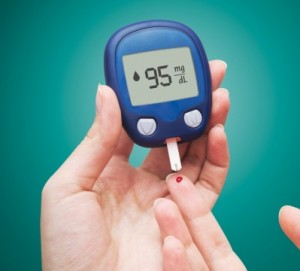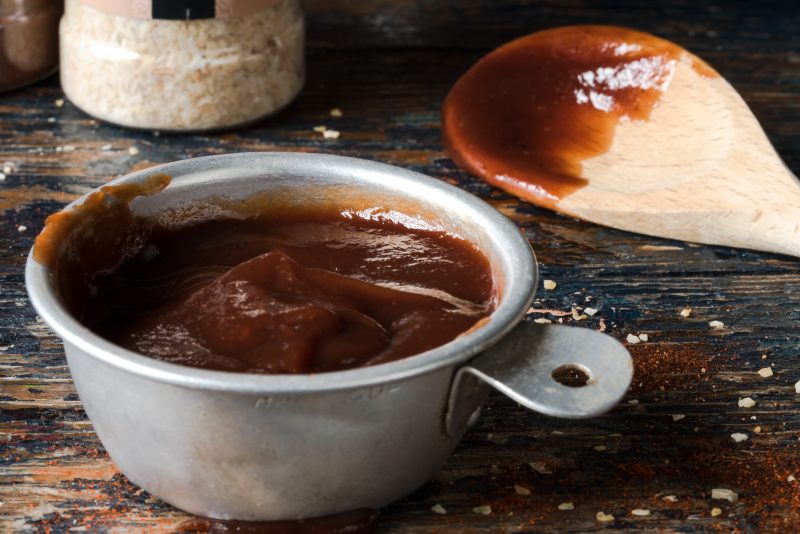Do you measure your blood sugar?
If not, you probably should. It is estimated that at least one third of adult Americans is pre-diabetic and some experts foresee that number approaching close to 100% of adults in the next ten years!
Prediabetes is characterized by elevated glucose levels in the blood and an increased risk of developing diseases such as type 2 diabetes, heart disease, stroke, alzheimer’s, and dementia, among many others.
Don’t be a statistic. With a bit of awareness and preventative action you can make huge strides towards balancing out your blood sugar and lowering your risk of developing disease.
How Does Blood Sugar Work?
When you eat carbohydrates they are broken down by your digestive system into glucose which is absorbed into your bloodstream. When the pancreas senses glucose in the blood in produces insulin which acts as an escort for the sugar into your cells so it can be metabolised into ATP for energy.
However, when glucose levels in the blood are chronically elevated the cells will no longer respond to increases in insulin resulting in what is called insulin resistance.
The pancreas may also become confused and overwhelmed by the onslaught of glucose that it just stops producing insulin altogether.
Chronically elevated blood sugar also leads to free radical damage, inflammation, and increased fat storage.
Obviously, none of these scenarios lead to ideal health and wellbeing.
So, how do you keep your blood sugar under control?
Blood Sugar Management
Obviously, the easiest way to control your blood sugar is by eating less sugar! But it is not quite as simple as it sounds. There are many hidden sources of sugar, especially in processed and fast food, that you might not realize you are consuming.
Read the labels on sauces, dips, and dressings, as they often have significant amounts of added sugar. Be wary of terms such as “syrup,” “nectar,” “cane juice,” “cane crystals,” “agave,” “honey,” “maltose,” “fructose,” and “dextrose.” Ultimately, these all mean “sugar.”
Also, pay attention to your starches. Many people forget that every starch, grain, and flour they consume is metabolized into sugar.
This includes all breads, pastries, pastas, bagels, tortillas, chips, crackers, and even potatoes! They are all straight sugar. Even the “gluten-free” versions of these foods are made with refined flours that will undoubtedly raise your blood sugar.
Even whole grains are metabolized into sugar. Although as complex carbohydrates with their fiber content intact their sugar content is metabolized and released into the blood more slowly, they can still cause a spike in blood sugar levels, especially in those who are insulin insensitive or resistant.
Now, this is not meant to make you scared of these foods or to say that you have to avoid eating them. But it is important to be aware of what foods have a dramatic effect on blood sugar levels.
Test Your Blood Sugar Levels
Since every person is unique and reacts differently to certain foods, it is imperative to test your blood sugar levels to know how certain foods affect you.
Blood glucose meters are relatively inexpensive (about $20) and can be found at most drug stores and online.
To start, you should test your blood glucose levels are immediately upon waking in the morning to assess fasting blood glucose. This will give you an idea of your baseline. A healthy fasting blood glucose reading will be under 100 mg/dl.
You should also test before eating and then again about 30 minutes to 1 hour after eating. This will give you insight into a particular food’s effect on blood sugar levels. Before meals you should aim to test around 80-99 mg/dl and after meals should be no more than 140 mg/dl.
If your test results are falling outside of these ranges then you need to make some changes to your diet!
Ketogenic Diet for Blood Sugar
One of the most surefire ways to balance out your blood sugar levels is by adopting a ketogenic diet. A ketogenic diet (keto for short) focuses on the consumption of high amounts of healthy fat, moderate amounts of healthy protein, and low amounts of healthy carbohydrate. This kind of diet naturally allows your blood glucose levels to balance out and your insulin sensitivity to be restored.
For expert guidance on navigating your transition to a ketogenic diet for blood sugar control, join for FREE at www.myslendersystem.com today!
References

















